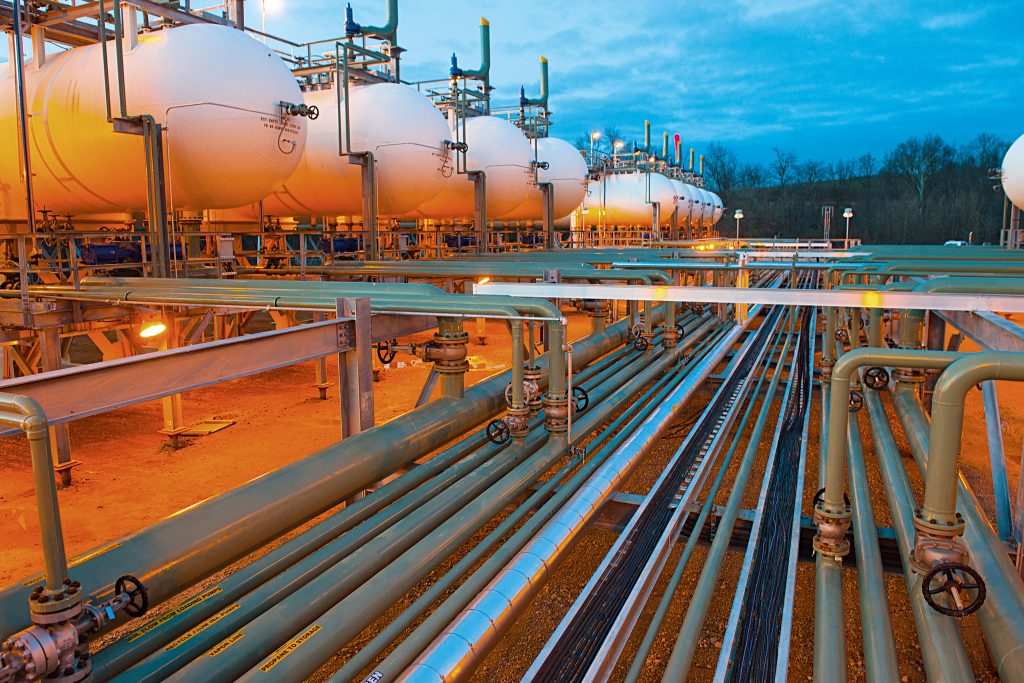Gas imports from US worse than coal, climate expert

October 9th, 2019
A US climate expert has called on the Irish Government to ban the importation
Speaking via video-link at a hearing of the Climate Action Committee today on the potential impact of gas imports, Professor Robert Howarth said that US production is dominated by shale gas obtained via hydraulic fracturing – more commonly known as fracking.
The hearing follows the Government’s controversial decision to support the Shannon LNG terminal for inclusion on a special EU list that could give it access to a €5.35 billion funding pot and a fast-track planning and permit granting process.
Critics argue that the terminal would facilitate the importation of fracked gas from the US as the American company behind the terminal, New Fortress Energy, receives gas supply from fracking and also plans to build out infrastructure near the “fracking fields” of Pennsylvania.
Fracking is a process for extracting gas by drilling into rocks and injecting pressurised water, sand and various chemicals to force out the gas. Many studies in the US have linked fracking to low birth weights, preterm births, birth defects, asthma, and neurological development issues.
Ireland is part of a small cluster of countries that have imposed a ban on fracking for shale gas. A 2017 study published by the Environmental Protection Agency found that the practice has the potential to damage both the environment and human health.
Prof Howarth is an expert on methane emissions from the oil and gas industry, publishing over 10 peer-reviewed papers on methane emissions from shale-gas developments in recent years.
He told the Committee that methane is an “incredibly powerful greenhouse gas” and is, gram to gram, 100 times more powerful than carbon dioxide.
The Cornell University scientist explained how methane is emitted into the atmosphere due to leaks and emissions at the well site, during processing and storage, and from transportation in pipelines. Around 3.5 per cent of US shale gas developed is emitted to the atmosphere this way, he said.
Outlining his most recent research in Biogeosciences, he said that methane in the atmosphere has “been rising rapidly over the past decade”. Shale gas development in North America is the single largest driver, he said, accounting for one-third of the increase in global emissions from all sources.

Irish gas footprint
Exporting gas to Ireland would have an “even greater greenhouse gas footprint”, he warned, as the liquefaction process and transportation across the Atlantic requires a “substantial amount of energy”.
The liquefaction process and transport are both energy-intensive and require continuous refrigeration that reduces net energy yield and increases emissions intensity compared to conventional gas supply chains.
“I, therefore, estimate that the use of shale gas imported as LNG to Ireland would create… a foot-print 44 per cent greater than that of coal,” Prof Howarth said. This is a conservative estimate, he added, that does not account for additional methane emissions from storing and transport.
“From the standpoint of climate change, LNG is a very poor fuel choice. I urge Ireland to prohibit the importation of fracked shale gas from the United States,” he said.
Also speaking at the hearing, the executive dean of DCU’s engineering school, Professor Barry McMullin said that Prof Howarth’s findings on methane emissions makes the case for natural gas as a transitional, lower intensity, fossil fuel “very weak”.
He said that the deployment and potential lock-in of additional fossil fuel infrastructure will not help us to rapidly decarbonise our energy system and “will most likely hinder an effective response” to climate change.
“It is clear that, for relatively wealthy nations, with high per-capita CO2 emissions, net-zero annual CO2 must be achieved much earlier than 2050 if the temperature and equity objectives of the Paris Agreement are to be respected,” he added.

Energy security growing
Natural gas is currently vital for electricity generation and heating in Ireland, an will remain an “important backbone” for the reliable and secure delivery of electricity up to at least 2030, according to Paul Deane, a research fellow at the Marine and Renewable Energy Ireland Centre (MaREI).
While indigenous gas production currently contributes to energy security, Mr Deane said that we are primarily dependent on the UK gas supply that primarily comes from traditional gas extraction in Qatar and Russia.
Gas imports from the US fracking industry accounts for one per cent of UK demand, Mr Dean said, with a strong LNG supply already going to several other EU states including Portugal and Spain.
He said that we have the potential to develop clean renewable gas in Ireland from animal manure, food waste and grass that could provide 28 per cent of our gas needs going forward.
“MaREI analysis on future low carbon scenarios shows an increasing trend in energy security as energy efficiency and indigenous renewable energy grow over time, thereby decreasing our import dependency,” he added.
The addition of the Celtic interconnector from Ireland to France will reduce future natural gas needs in power generation by seven per cent, Mr Deane added.
[x_author title=”About the Author”]







